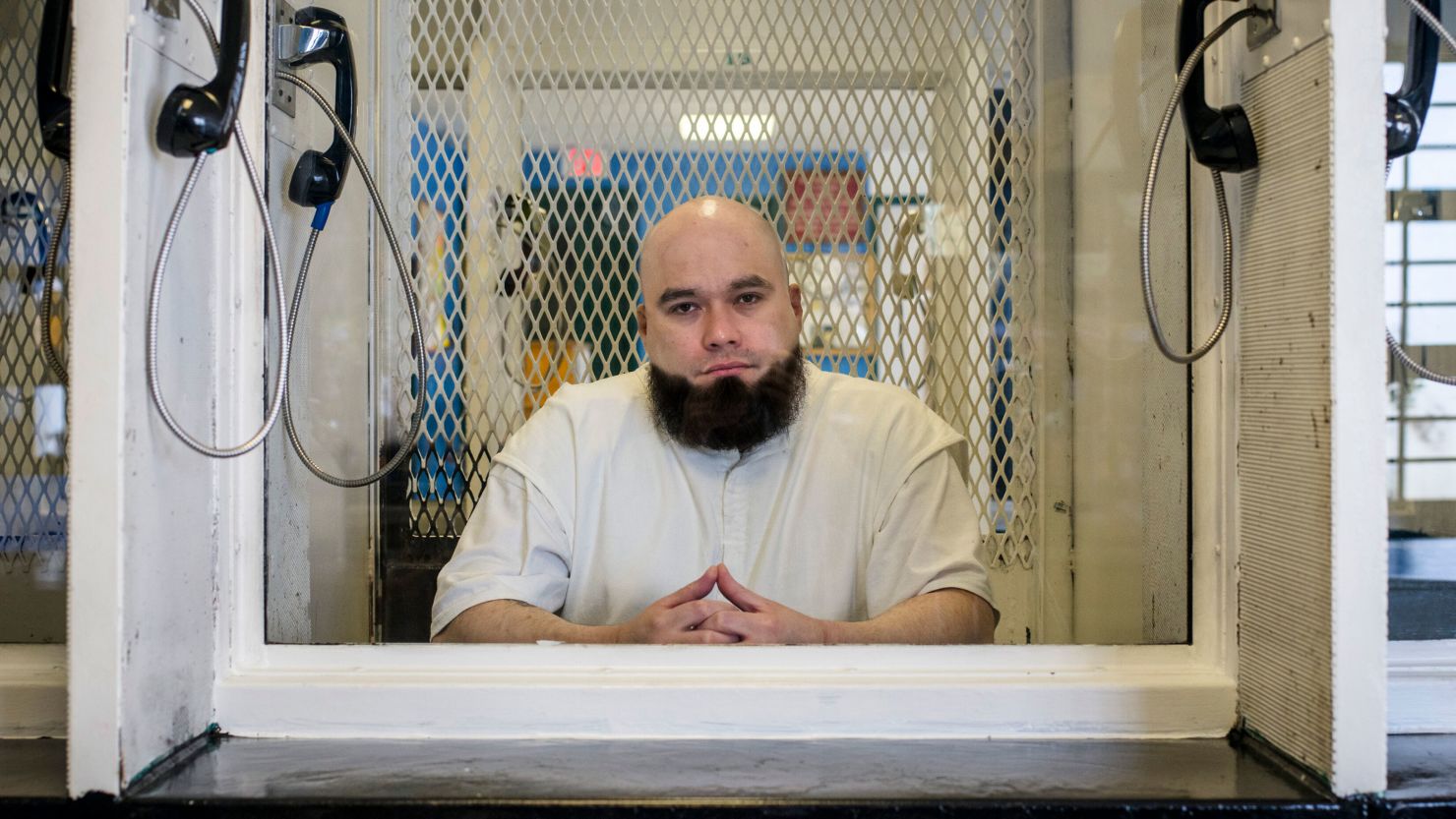Texas has executed John Henry Ramirez, whose spiritual adviser was allowed to pray aloud and “lay hands” on him as he died after a US Supreme Court ruling led to new guidelines in his case and in similar requests in prisons across the country.
Ramirez, 38, was killed Wednesday evening by lethal injection at the state prison system’s Huntsville Unit for the 2004 murder of Pablo Castro, a grandfather to 14 and convenience store employee whom Ramirez robbed of $1.25 and stabbed 29 times.
According to Texas Department of Criminal Justice, Ramirez’s last words were: “I just want to say to the family of Pablo Castro, I appreciate everything that y’all did to try and communicate with me through the Victim’s Advocacy program. I tried to reply back, but there is nothing that I could have said or done that would have helped you.
“I have regret and remorse, this is such a heinous act. I hope this finds you comfort, if this helps you then I am glad. I hope in some shape or form this helps you find closure.
“To my wife, my friends, my son, grasshopper, Dana and homies, I love y’all. Just know that I fought a good fight, and I am ready to go. I am ready, Warden.”
He was pronounced dead at 6:41 p.m. CT, 14 minutes after the injection of pentobarbital began.
The Rev. Dana Moore of Corpus Christi’s Second Baptist Church, who’d sworn to the high court he needed “to be in physical contact with John Ramirez during the most stressful and difficult time of his life in order to give him comfort,” was with the inmate when he died.
“Human touch has significance and power,” Moore had written in an affidavit in support of Ramirez’s request for the pastor to “lay hands” on him at his execution.
“I will be there for John,” Moore recently told CNN, “be able to see him and just minister to him and be able to touch him, to kind of give him reassurance, some semblance of peace, that he’s got somebody who’s there on his side that’s with him.”
After the execution, Pablo Castro’s son, Aaron Castro, issued a statement that said in part: “God is the only Judge, jury, and verdict in the end for all of us. Who are we to hold hate, anger, and vengeance on our mind.”
Texas is among 27 US states that still have capital punishment, with five more executions scheduled through March.
Case weighed state’s safety concerns
Ramirez’s legal dispute highlighted the balance between an inmate’s request for a religious accommodation at execution and a state’s wish to respect security and safety concerns in the chamber.
The convicted killer had been set to be executed on September 8, 2021. When he learned the date, he asked corrections officials if Moore could be with him in the execution chamber. That request was initially denied, but prison officials later changed their minds, court records state, amending their protocol to allow in a spiritual adviser.
Ramirez then asked that Moore be allowed to “lay hands” on him and “pray over” him, rituals he argued were a crucial part of the observance of his faith. Texas denied the request, and Ramirez appealed, then sued as his execution neared, arguing the department’s denial would violate his rights under the First Amendment and the Religious Land Use and Institutionalized Persons Act. The case was later expanded to include Ramirez’s desire that Moore be allowed to pray audibly after corrections officials denied that request.
The case was appealed to the Supreme Court, which halted Ramirez’s execution at the eleventh hour – Moore was at the prison, waiting for it to begin – so it could hear his case.
The court in March ruled 8-1 in Ramirez’s favor.
A fresh legal twist emerged the next month, when the Nueces County district attorney filed a motion withdrawing his office’s request for a death warrant, citing his “firm belief that the death penalty is unethical.” A state appeals court last month denied the motion.
And a majority of the Texas Board of Pardons and Paroles this week decided not to recommend commuting Ramirez’s death sentence to a lesser penalty.
CNN’s Ariane de Vogue, Devan Cole and Paradise Afshar contributed to this story.



